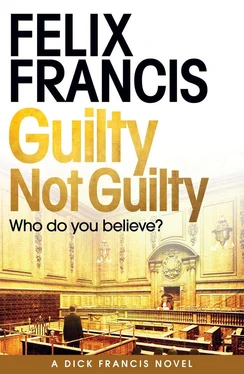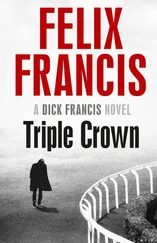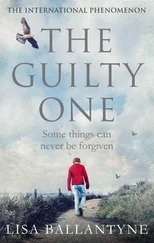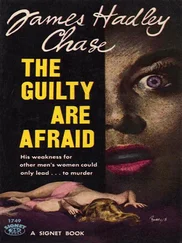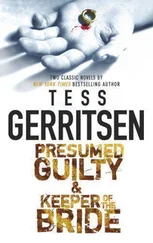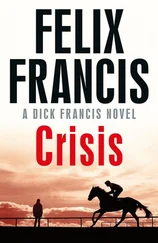As the pathologist had so rightly said, it had then taken a minute or two for Amelia to lose consciousness. Plenty of time to open the door and remove the dog lead from its fixing point before falling to the floor.
Had she dug her fingernails into her own neck in a true attempt to remove the lead because she had suddenly changed her mind, or had that been a calculated move to further the lie that she’d been murdered?
No one would ever know, and I wasn’t sure which of those thoughts gave me the most comfort.
Neither of them.
‘Oh, my darling Amelia,’ I cried out loud in pain. ‘Why didn’t you talk to me?’
I sobbed some more, a lot more.
I sat on my kitchen floor deep into the night, not knowing what to do next, and I spent the time thinking.
The simple answer, of course, was to call DS Dowdeswell and tell him what I’d found. Maybe that was also the right and proper thing to do.
But was it really that simple?
As far as DS Dowdeswell and his colleagues were concerned the case was over — arrest, charge, conviction and sentence. Job done and dusted. Now off to the pub to celebrate.
How had they or the pathologist not seen what was under their noses? Why had they not recognised the relevance of a self-locking buckle? Had they been so blinkered by their determination to find a culprit for their ‘murder’, first me and then Joe, that it had overridden simple common sense?
The law courts take their time over correcting any perceived mistakes. The decision of a jury to convict is not one that is overturned lightly, or quickly, by the Court of Appeal. Not that time was really an issue here. It was only the murder conviction that was in doubt, not that for attempted murder.
And would the police or the courts take any notice of me anyway? They certainly wouldn’t thank me.
And Joe was guilty of Amelia’s murder.
There was no uncertainty in my mind about that.
He may not have physically strangled her, as the jury in Oxford had believed and decided, but he’d killed her nevertheless. He’d been the one who had driven her to suicide with his merciless attacks on her state of mind over a period of three years. That final vicious email, sent just five days before she died, had simply been the last straw.
Yes , I thought, Joe deserves to be convicted of her murder .
So what should I do?
If Amelia’s soul was indeed somewhere else, lost in the ether, and she could somehow read my mind, what would she be saying now? She would be screaming in frustration that I had discovered the truth, and urging me to do nothing about it.
So would I be betraying her if I went to the police?
However, there was also the financial position to consider.
All my life I had been an insurance man, and an honest one too. Other than the occasional speeding conviction, I’d done nothing for which I felt any sense of guilt. I’d never fiddled my taxes, nor even exaggerated my expense claims.
So was I about to accept a million-pound payout for my wife’s life insurance when I knew it to be a fraud?
But no one else knew, or even suspected. The market stallholder hadn’t appreciated the significance of what he’d told me. He’d been simply making conversation. Similarly, Nancy didn’t realise why Amelia having gone out on that Tuesday evening was important.
And I hadn’t lied under oath in court. I had told the truth, the whole truth and nothing but the truth — as I’d then believed it to be.
All I had to do now was to keep quiet.
But I would always know, and one cannot unlearn something. If the human race could unlearn how to make nuclear bombs, the world would be a safer place.
However, that was not an option, and nor was this.
Around four in the morning it started to get light and I was still sitting on the kitchen floor. And still considering my options.
I was certain that Joe would appeal his conviction and sentence — anyone would in these circumstances.
Did that not mean that it was his defence team’s responsibility to produce any new evidence to indicate that his conviction was unsafe?
Was I under any obligation to assist them?
Would Joe have done the same for me if the roles had been reversed?
Not a snowball’s chance in hell.
Then I thought about Rachael and her girls. Twenty-five years is a very long time. Without the life-sentence tariff, Joe would be out on parole in under a third of that, having served half his sentence for attempted murder.
But did that really make me feel any safer?
He had tried to kill me twice, that’s if you counted the knife attack at his mother’s house, which I certainly did. Wouldn’t the long years in prison simply make him more determined to be third time lucky just as soon as he was released?
Very likely.
So wasn’t it better for me to keep him in prison for as long as possible?
Undeniably.
So what should I do?
I decided to sleep on it and went to bed.
